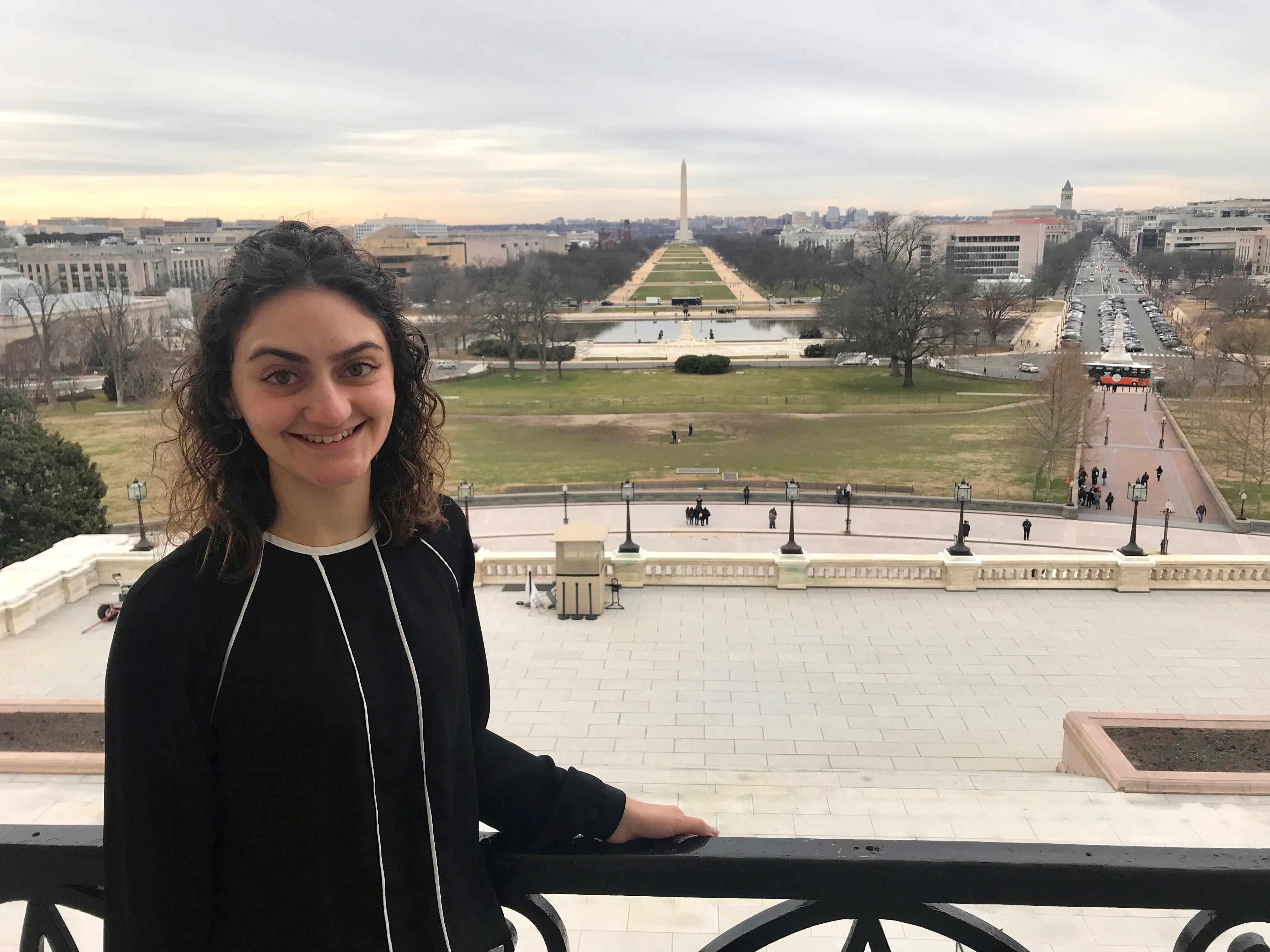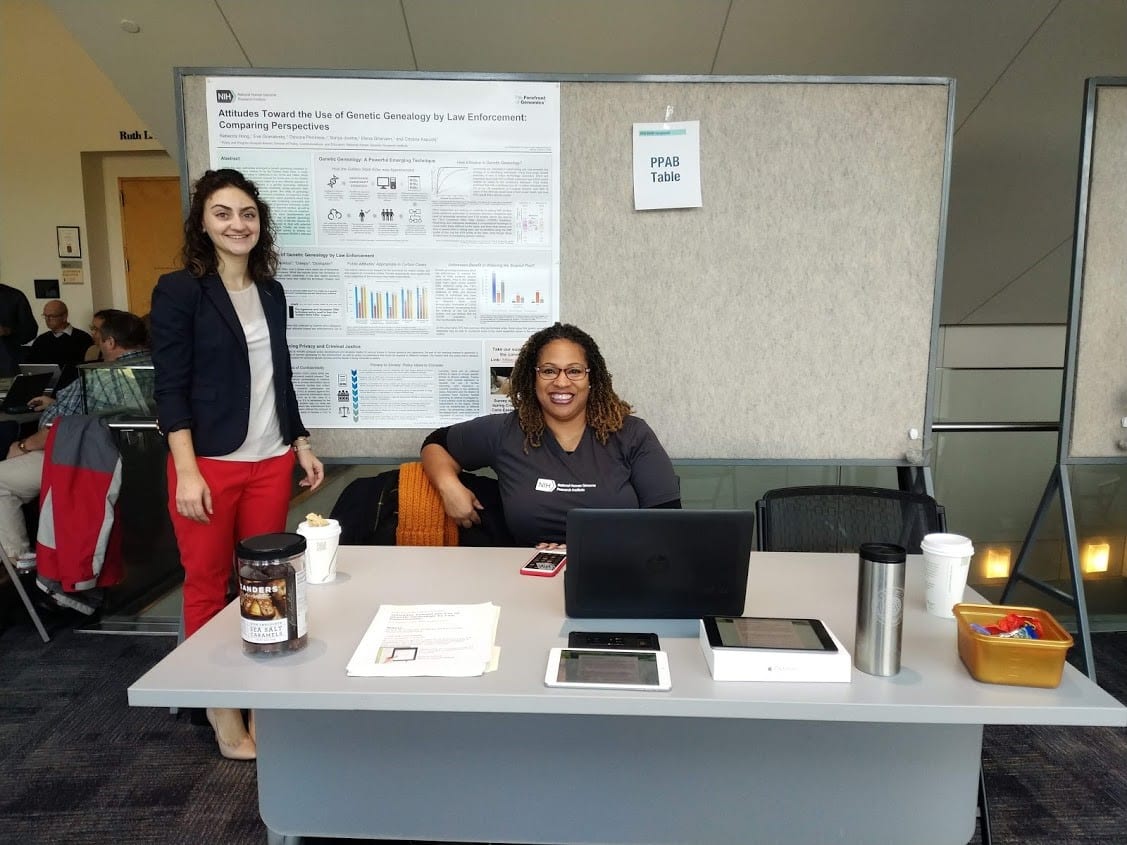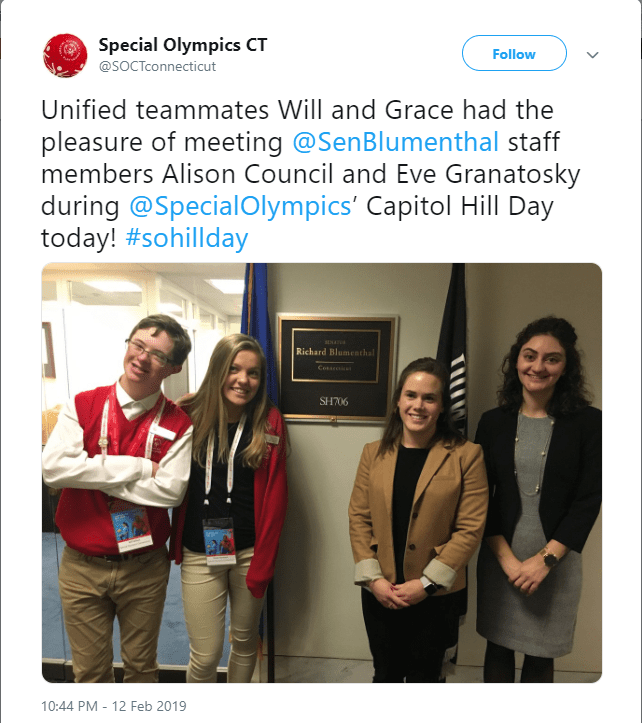Posted By: Eve Granatosky, PhD, ASHG/NHGRI Genetics & Public Policy Fellow
Around this time last year, I was putting the finishing touches on my dissertation and trying to coordinate a date for my thesis defense. This week, I helped prepare a United States Senator for an event on drug pricing and met with constituent groups on issues ranging from cancer research to school nutrition. This dramatic and exciting shift was only possible because of the ASHG/NHGRI Genetics & Public Policy Fellowship.

Throughout most of my time in graduate school, I knew that I wanted to pursue a career in science policy, and was looking for an opportunity that would allow me to apply my scientific expertise in rare diseases and preclinical drug discovery in a policy setting. The Genetics & Public Policy Fellowship was a great fit with my background and interest in exploring multiple spaces within the policy world. So far, I’ve had the chance to work in both the executive and legislative branches of the U.S. government, and later this year I’ll complete my fellowship with the Policy and Advocacy team at ASHG. I’m currently about six months into my fellowship, and am happy to report that the experience so far has been just as excellent as I had hoped.
Budgetary and Strategic Planning at NHGRI
I started my fellowship in September within the Policy and Program Analysis Branch (PPAB) at the National Human Genome Research Institute (NHGRI). Right away, I got to jump into several projects the branch was working on, including drafting the Institute’s Fiscal Year 2020 Congressional Budget Justification, an important step in NHGRI’s being funded each year. This was a great way to learn about many of the research projects funded by NHGRI and write about them in a way that was concise, engaging, and accessible. I also helped organize feedback from the wider genomics community that was collected as part of NHGRI’s ongoing strategic planning process.
A highlight of this rotation was presenting a poster at the annual NHGRI Symposium. My PPAB colleagues and I described some recent studies on public perceptions of the use of genetic data by law enforcement (particularly for solving cold cases) and discussed potential policy options to address genetic privacy. After surveying symposium participants on their own views on this topic, we learned that while the NHGRI community was mostly supportive of the use of genetic data for law enforcement for solving crimes, they overall reported having more concerns about their genetic privacy than do members of the general public who have been surveyed.

A Wide Range of Health and Education Topics on the Hill
This January, I started my second fellowship rotation, in the office of Senator Richard Blumenthal from my home state of Connecticut. I work with two other staffers on the health and education portfolios, including issues related to biomedical research. Within the health space, I’ve worked on a wide range of issues, including antibiotic stewardship, e-cigarettes, prescription drugs, and dietary supplements. In education, I’m working on issues related to social and emotional learning and oversight of predatory colleges and universities.
So far, I’ve been involved in both long-term projects in these areas as well as the day-to-day business of the office. I really enjoy getting to meet with Connecticut constituents to discuss their priorities and concerns – I feel like I learn something new every meeting and it’s fascinating to get to hear about so many different topics.
Another major part of my job as a fellow is drafting bills, letters, memos, and briefings for the Senator to help him prepare for events. Putting together memos and briefings is probably where my research and analysis skills from graduate school are most valuable. These documents need to succinctly synthesize what a particular event is about, what stakeholders are involved and what their perspectives are, what past legislative or oversight work the Senator has done in that issue area, and what message he should try to get across in his remarks. Overall, I really like the pace of my office and the scope of issues I work on, and I’m looking forward to what the next few months will bring!

Applying My Scientific Training in a Policy Environment
As I look back on the past six months, I realize how valuable this fellowship has been for my career and professional development. I’ve solidified my interest in pursuing a path in science policy, and thought more specifically about what kind of professional positions I might like to pursue in the future. I’m constantly refining my communication skills, particularly in writing for different audiences and purposes. I’m improving my project and time management skills, and learning to how to prioritize short- and long-term goals. Maybe most importantly, I really like what I’m doing! This fellowship has shown me first hand that I can apply my scientific training outside of a research environment in a way that’s both personally and professionally fulfilling.
I would definitely recommend this fellowship to any early career genetics professionals who are interested in careers in policy. Beyond getting to do the kind of awesome work I talked about here, you’ll benefit from mentorship and support from the whole community of fellowship alumni. Thank you to ASHG and NHGRI for making this experience possible, and I can’t wait to see what the rest of my fellowship brings!
Interested in applying for the ASHG/NHGRI Genetics & Public Policy Fellowship? Applications are open through April 19.
